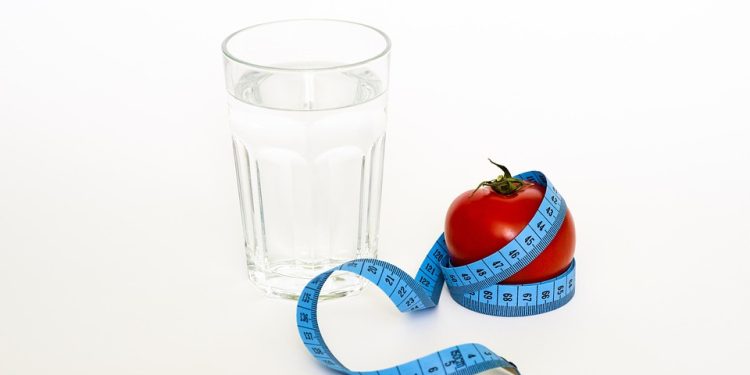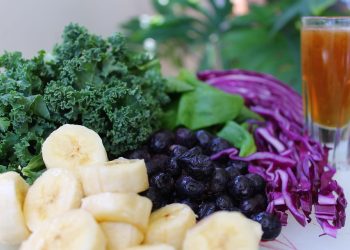The Smart Way to Shed Pounds: A Guide to Healthy and Sustainable Weight Loss
Losing weight is a common goal, but often approached with unsustainable methods. Crash diets, extreme exercise regimens, and restrictive eating can lead to short-term results followed by frustration and potential health risks. This guide focuses on creating a healthy and sustainable approach to weight loss, prioritizing long-term well-being and lasting results.
Why Sustainable Weight Loss Matters
Sustainable weight loss isn’t just about the number on the scale. It’s about building healthy habits that support your overall health and well-being. It emphasizes gradual changes, balanced nutrition, and mindful movement, leading to a healthier relationship with food and your body. Benefits include:
- Improved physical health (lower blood pressure, cholesterol, and blood sugar levels).
- Increased energy levels.
- Better mood and mental well-being.
- Reduced risk of chronic diseases.
- Long-term weight management.
Nutrition: Fueling Your Body for Success
Nutrition is the cornerstone of any successful weight loss journey. Focusing on whole, unprocessed foods and mindful eating habits can help you achieve your goals without feeling deprived.
Prioritize Whole Foods
Whole foods are foods that are minimally processed and as close to their natural state as possible. These include:
- Fruits and vegetables: Packed with vitamins, minerals, and fiber. Aim for a variety of colors to ensure you’re getting a broad spectrum of nutrients.
- Lean proteins: Essential for building and repairing tissues, and keeping you feeling full. Examples include chicken breast, fish, beans, lentils, and tofu.
- Whole grains: Provide sustained energy and fiber. Choose options like brown rice, quinoa, oats, and whole-wheat bread.
- Healthy fats: Important for hormone production, brain function, and nutrient absorption. Include sources like avocados, nuts, seeds, and olive oil.
Example: Instead of a processed granola bar for breakfast, opt for a bowl of oatmeal with berries, nuts, and a sprinkle of seeds.
Portion Control: Mastering the Art of Balance
Even healthy foods can contribute to weight gain if consumed in excessive portions. Be mindful of your portion sizes to ensure you’re consuming the right amount of calories for your needs.
- Use smaller plates and bowls: This can help you visually perceive a larger portion size.
- Measure your food: Use measuring cups and spoons to accurately portion your meals, especially in the beginning.
- Listen to your body’s hunger cues: Eat when you’re hungry and stop when you’re satisfied, not stuffed.
Example: Instead of eating directly from a bag of chips, measure out a single serving into a bowl.
Hydration is Key: Drink Your Way to a Healthier You
Water is essential for countless bodily functions, including metabolism, digestion, and nutrient absorption. Staying hydrated can also help you feel full, reducing the likelihood of overeating.
- Aim for at least 8 glasses of water per day: Adjust your intake based on your activity level and climate.
- Carry a water bottle with you: This serves as a constant reminder to drink water throughout the day.
- Infuse your water with fruits and herbs: Add slices of lemon, cucumber, or mint to make your water more appealing.
Example: Drink a glass of water before each meal to help you feel fuller and eat less.
Mindful Eating: Cultivating a Healthy Relationship with Food
Mindful eating involves paying attention to the present moment while eating, savoring each bite, and noticing your body’s hunger and fullness cues. This can help you break free from mindless eating habits and develop a healthier relationship with food.
- Eat slowly and deliberately: Put your fork down between bites and chew your food thoroughly.
- Minimize distractions: Turn off the TV and put away your phone while eating.
- Pay attention to the taste, texture, and smell of your food: Engage all your senses to fully experience your meal.
- Listen to your body’s hunger and fullness cues: Stop eating when you’re satisfied, even if there’s food left on your plate.
Example: Before starting your meal, take a few deep breaths and appreciate the aroma and presentation of your food.
Limit Processed Foods, Sugary Drinks, and Added Sugars
Processed foods are often high in calories, unhealthy fats, and added sugars, while being low in nutrients. Sugary drinks provide empty calories and can contribute to weight gain. Limiting these items is crucial for sustainable weight loss.
- Read food labels carefully: Pay attention to the serving size, calories, and added sugars.
- Choose whole, unprocessed foods whenever possible: Cook meals from scratch using fresh ingredients.
- Opt for water, unsweetened tea, or sparkling water instead of sugary drinks: Avoid soda, juice, and sweetened coffee.
- Use natural sweeteners like stevia or monk fruit in moderation: Be mindful of hidden sugars in sauces, dressings, and condiments.
Example: Swap your daily soda for a glass of sparkling water with a squeeze of lemon or lime.
Exercise: Moving Your Body for a Healthier You
Exercise is an essential component of a healthy lifestyle and plays a vital role in weight management. It helps you burn calories, build muscle mass, and improve your overall fitness level.
Find Activities You Enjoy
The key to sticking with an exercise routine is to find activities you enjoy. This could be anything from dancing to hiking to swimming. The more you enjoy it, the more likely you are to stick with it.
- Experiment with different activities: Try different classes, sports, or outdoor adventures to find what you love.
- Make it social: Exercise with a friend or join a group fitness class.
- Set realistic goals: Start small and gradually increase the intensity and duration of your workouts.
- Reward yourself for your efforts: Celebrate your progress with non-food rewards like a new workout outfit or a relaxing massage.
Example: If you hate running, try cycling or swimming instead.
Incorporate Both Cardio and Strength Training
Cardio exercise helps you burn calories and improve your cardiovascular health, while strength training helps you build muscle mass, which boosts your metabolism and helps you burn more calories at rest.
- Cardio: Aim for at least 150 minutes of moderate-intensity cardio or 75 minutes of vigorous-intensity cardio per week. Examples include brisk walking, jogging, swimming, cycling, and dancing.
- Strength Training: Incorporate strength training exercises that target all major muscle groups at least two days per week. Examples include lifting weights, using resistance bands, or doing bodyweight exercises like push-ups and squats.
Example: Alternate between cardio days (e.g., running) and strength training days (e.g., weightlifting).
Make Exercise a Part of Your Daily Routine
Finding time for exercise can be challenging, but it’s important to prioritize it. Look for opportunities to incorporate physical activity into your daily routine.
- Take the stairs instead of the elevator: This is a simple way to add extra steps to your day.
- Walk or bike to work: If possible, consider walking or biking to work instead of driving.
- Park further away from your destination: This will force you to walk a bit further.
- Take breaks from sitting to stretch and move around: Get up and walk around every 30 minutes.
Example: Take a walk during your lunch break or do some simple stretches at your desk.
Listen to Your Body and Rest When Needed
It’s important to listen to your body and rest when needed. Overtraining can lead to injuries and burnout. Make sure to get enough sleep and allow your body time to recover between workouts.
- Aim for 7-8 hours of sleep per night: Sleep deprivation can disrupt your hormones and lead to increased appetite and cravings.
- Take rest days: Allow your body time to recover between workouts.
- Stretch and foam roll: This can help to reduce muscle soreness and improve flexibility.
Example: Schedule rest days into your workout routine and prioritize sleep.
Lifestyle: Creating a Supportive Environment
Your lifestyle plays a significant role in your weight loss journey. Creating a supportive environment can help you stay on track and achieve your goals.
Manage Stress
Stress can lead to emotional eating and hinder your weight loss efforts. Find healthy ways to manage stress, such as:
- Meditation: Practice mindfulness meditation to calm your mind and reduce stress.
- Yoga: Combine physical postures, breathing techniques, and meditation to promote relaxation and stress relief.
- Spending time in nature: Immerse yourself in nature to reduce stress and improve your mood.
- Connecting with loved ones: Spend time with friends and family to feel supported and connected.
Example: Take a few minutes each day to meditate or go for a walk in the park.
Get Enough Sleep
As mentioned earlier, sleep deprivation can disrupt your hormones and lead to increased appetite and cravings. Aim for 7-8 hours of quality sleep per night.
- Establish a regular sleep schedule: Go to bed and wake up at the same time each day, even on weekends.
- Create a relaxing bedtime routine: Take a warm bath, read a book, or listen to calming music before bed.
- Make your bedroom dark, quiet, and cool: Optimize your sleep environment for restful sleep.
- Avoid caffeine and alcohol before bed: These can interfere with your sleep.
Example: Create a relaxing bedtime routine that includes a warm bath and reading a book.
Seek Support
Having a support system can make a big difference in your weight loss journey. Connect with friends, family, or a support group to share your experiences and receive encouragement.
- Talk to your friends and family about your goals: Let them know how they can support you.
- Join a weight loss support group: Connect with others who are on a similar journey.
- Consider working with a registered dietitian or personal trainer: They can provide personalized guidance and support.
Example: Join a local walking group or find an online weight loss community.
Be Patient and Persistent
Weight loss is a journey, not a destination. There will be ups and downs along the way. Be patient with yourself, celebrate your successes, and learn from your setbacks. The key is to stay persistent and keep moving forward.
- Set realistic expectations: Don’t expect to lose weight overnight.
- Focus on progress, not perfection: Don’t get discouraged by occasional slip-ups.
- Celebrate your successes: Acknowledge and celebrate your accomplishments along the way.
- Learn from your setbacks: Use setbacks as opportunities to learn and grow.
Example: Don’t give up if you have a bad day. Just get back on track the next day.
Conclusion
Sustainable weight loss is about more than just losing pounds. It’s about adopting a healthy lifestyle that supports your overall well-being. By focusing on whole foods, portion control, mindful eating, regular exercise, stress management, and a supportive environment, you can achieve your weight loss goals and maintain them for the long term. Remember to be patient with yourself, celebrate your successes, and learn from your setbacks. With persistence and dedication, you can create a healthier and happier you.
Frequently Asked Questions (FAQs)
Here are some frequently asked questions about healthy and sustainable weight loss:
- Q: How much weight should I aim to lose per week?
- A: A healthy and sustainable rate of weight loss is typically 1-2 pounds per week. This allows your body to adjust gradually and reduces the risk of muscle loss and other negative side effects.
- Q: What if I have a bad day and overeat?
- A: It’s okay to have occasional slip-ups. Don’t beat yourself up about it. Just get back on track with your healthy eating habits the next day.
- Q: Do I need to cut out all my favorite foods to lose weight?
- A: No, you don’t need to completely eliminate your favorite foods. It’s about moderation. Enjoy your favorite foods in smaller portions and less frequently.
- Q: What are some healthy snack options?
- A: Some healthy snack options include fruits, vegetables with hummus, nuts, seeds, yogurt, and hard-boiled eggs.
- Q: How can I stay motivated on my weight loss journey?
- A: Set realistic goals, track your progress, celebrate your successes, find a support system, and remind yourself of your reasons for wanting to lose weight.
- Q: Is it necessary to count calories to lose weight?
- A: While calorie counting can be helpful for some, it’s not essential for everyone. Focusing on whole foods, portion control, and mindful eating can also lead to successful weight loss.
- Q: What are some strategies for dealing with cravings?
- A: Identify the triggers for your cravings, find healthy alternatives, practice mindful eating, and distract yourself with other activities.
- Q: How important is sleep for weight loss?
- A: Sleep is very important for weight loss. Lack of sleep can disrupt hormones that regulate appetite and lead to increased cravings.
- Q: Can I lose weight without exercise?
- A: Yes, you can lose weight through diet alone. However, exercise can help you burn more calories, build muscle mass, and improve your overall health.
- Q: Should I consult a doctor before starting a weight loss program?
- A: It’s always a good idea to consult with your doctor before starting any weight loss program, especially if you have any underlying health conditions.












